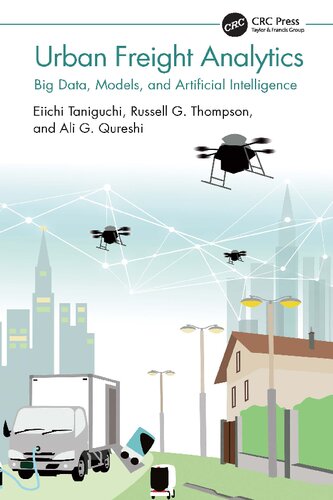

Most ebook files are in PDF format, so you can easily read them using various software such as Foxit Reader or directly on the Google Chrome browser.
Some ebook files are released by publishers in other formats such as .awz, .mobi, .epub, .fb2, etc. You may need to install specific software to read these formats on mobile/PC, such as Calibre.
Please read the tutorial at this link: https://ebookbell.com/faq
We offer FREE conversion to the popular formats you request; however, this may take some time. Therefore, right after payment, please email us, and we will try to provide the service as quickly as possible.
For some exceptional file formats or broken links (if any), please refrain from opening any disputes. Instead, email us first, and we will try to assist within a maximum of 6 hours.
EbookBell Team

4.8
104 reviewsUrban Freight Analytics examines the key concepts associated with the development and application of decision support tools for evaluating and implementing city logistics solutions. New analytical methods are required for effectively planning and operating emerging technologies including the Internet of Things (IoT), Information and Communication Technologies (ICT), and Intelligent Transport Systems (ITS).
The book provides a comprehensive study of modelling and evaluation approaches to urban freight transport. It includes case studies from Japan, the US, Europe, and Australia that illustrate the experiences of cities that have already implemented city logistics, including analytical methods that address the complex issues associated with adopting advanced technologies such as autonomous vehicles and drones in urban freight transport.
Also considered are future directions in urban freight analytics, including hyperconnected city logistics based on the Physical Internet (PI), digital twins, gamification, and emerging technologies such as connected and autonomous vehicles in urban areas. An integrated modelling platform is described that considers multiple stakeholders or agents, including emerging organisations such as PI companies and entities such as crowd-shippers as well as traditional stakeholders such as shippers, receivers, carriers, administrators, and residents.
This book
The book is ideal for graduate students in civil and environmental engineering and logistics management, urban planners, transport engineers, and logistics specialists.